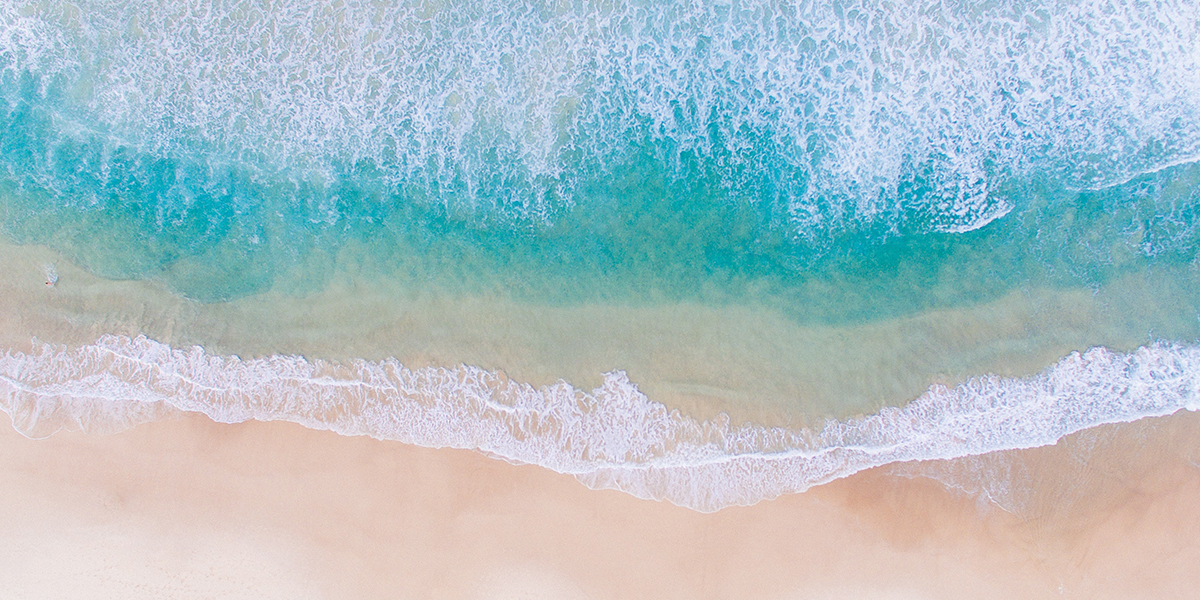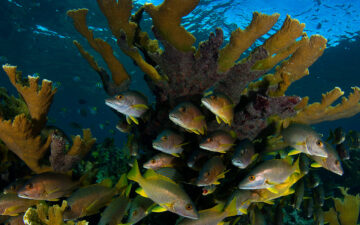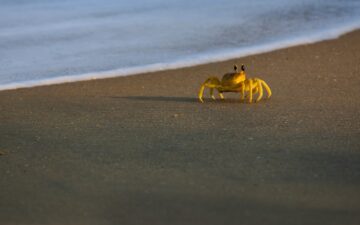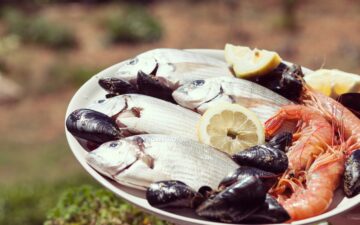The Ocean Foundation, Harte Research Institute for Gulf of Mexico Studies, and the Caribbean Marine Research and Conservation Program Partner to Advance Recreational Fisheries Policy and Management in Cuba
Washington, D.C., October 16, 2019—The Ocean Foundation (TOF), Harte Research Institute for Gulf of Mexico Studies (HRI) at Texas A&M University-Corpus Christi, and Caribbean Marine Research and Conservation Program (CariMar, a project of TOF) have been working in Cuba on marine science and conservation issues for two decades. In January 2018, the three organizations launched a unique partnership with Cuban agencies, research institutions and the recreational fishing community to sustainably develop Cuba’s fisheries. The multiyear project, “Advancing Recreational Fisheries Policy and Management in Cuba,” will advance and complement a newly announced landmark Cuban fisheries law.
Background:
Next year, the 70th Hemingway International Billfish Tournament will take place. It is one of the world’s oldest big-game fishing tournaments, marking the enduring global draw of the rich biodiversity in the gulf stream waters of Cuba for sportfishing. This is an excellent moment in time to make sure such an opportunity continues to draw future generations by ensuring the recreational fishing in Cuba is well managed, especially as the industry is likely to grow as tourism to the country continues to increase. Tourism’s direct contribution to Cuba’s GDP is more than double the Caribbean average at $2.3 billion USD in 2017 and is projected to rise 4.1% from 2018-2028. For Cuba, this growth presents a valuable opportunity to promote a sustainable and conservation-based sportfishing industry in the archipelago. The goal of the project “Advancing Recreational Fisheries Policy and Management in Cuba” is to support Cuba in designing its policies for a sportfishing industry that is sustainable and conservation-based, while tapping opportunities to promote coastal livelihoods around this sustainable resource.
Key Workshop:
In July 2019, CariMar, HRI, and TOF partnered with the University of Havana’s Marine Research Center, Cuba’s Fisheries Research Center, and the Hemingway International Yacht Club to carry out a groundbreaking workshop entitled Sportfishing in Cuba: A Sustainable, Conservation-based, Economic Opportunity. The workshop brought together over 40 Cuban stakeholders, including academics, sportfishing guides, tourism agency representatives and many others who had never before communicated on sportfishing issues. As a result of this workshop, participants formed the first-ever Cuban National Sportfishing Working Group. This multidisciplinary body will advise all sportfishing initiatives in the country in a way that ensures a sound and sustainable recreational fishing policy. The working group includes representatives from government, academia and practitioners.
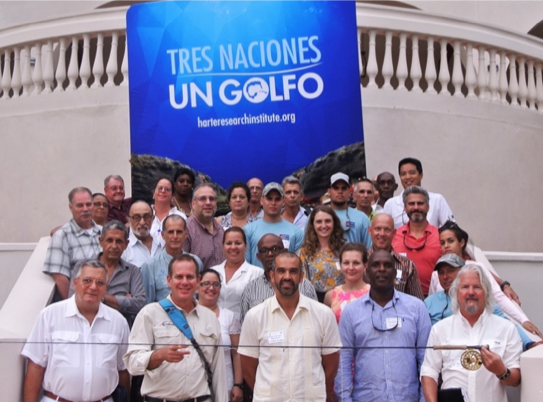
Cuba’s New Fisheries Regulation and Next Steps:
As the Cuban National Sportfishing Working Group was formed, the Cuban National Assembly enacted a new national fisheries law that aligns closely with this project’s goal of promoting sustainable sportfishing. The law focuses on the protection of fish populations and marine ecosystems while promoting the sustainable development of coastal fishing communities. It requires managers to use science-based and adaptive approaches and allows for private (non-government) fisheries industry development. This reform is the first major change in 20 years to Cuba’s fisheries legislation and it encompasses all types of fisheries—commercial, artisanal, and sportfishing.
According to CariMar Director Fernando Bretos,
“We are enthusiastic to play a role in the law’s implementation using the home grown Cuban National Sportfishing Working Group. The Working Group is ideally suited to recommend policy measures toward the sustainable management of this industry based on sound science.”
Fernando Bretos, CariMar Director
“A conservation-based sportfishing industry can be an economic driver that also has great benefits to the environment,” stated Dr. Larry McKinney, Sr. Executive Director of HRI. “Cuba has already established a sound foundation on which to expand sportfishing, and seeing Cuban university scientists working with counterparts in tourism and fisheries management to that end bodes well for the future.”
Project Activities:
The project involves the following activities:
- Conduct case studies of sportfishing policies around the world to provide guidance for Cuban context (ongoing)
- Understand current sportfishing science in Cuba and the Caribbean that can guide sportfishing management in Cuba (ongoing)
- Organize a workshop for Cuban sportfishing experts and specialists from other nations to discuss conservation-based sportfishing models with interested parties (conducted July 2019)
- Partner with pilot sites to better understand the scientific, conservation, and economic opportunities for operators (ongoing)
- Conduct a learning exchange between Cuban and Seychelles government representatives to explore adequate licensing and financial sustainability measures (conducted September 2019)
- Work with Cuban officials to design a nationwide sportfishing management plan (2020)
Project Partners:
- The Ocean Foundation
- Harte Research Institute for Gulf of Mexico Studies
- Caribbean Marine Research and Conservation Program
- University of Havana’s Marine Research Center (CIM)
- Ministry of Food Industry’s Fisheries Research Center (CIP)
- Hemingway International Yacht Club
About the Project Partners:
The Ocean Foundation is the only community foundation for the ocean, with a mission to support, strengthen, and promote those organizations dedicated to reversing the trend of destruction of ocean environments around the world. The Ocean Foundation’s projects and initiatives work to equip communities that depend on the ocean’s health with resources and knowledge for policy advising and for increasing capacity for mitigation, monitoring, and adaptation strategies.
The Harte Research Institute for Gulf of Mexico Studies at Texas A&M University-Corpus Christi is the only marine research institute dedicated solely to advancing the long-term sustainable use and conservation of the world’s ninth-largest body of water. Established in 2001, the Harte Research Institute integrates outstanding scientific research with public policy to provide international leadership in generating and disseminating knowledge about the Gulf of Mexico ecosystem and its critical role in the economies of the North American region.
Caribbean Marine Research and Conservation Program strengthens and advances regional co-operation and technical and financial capacity in all aspects of coastal and marine sciences, including socio-economic sciences, while supporting sustainable policy and management of the unique cultural and ecological resources of the Caribbean region.
University of Havana’s Marine Research Center contributes to the preservation of the environment and sustainable development through the integration of research and human capacity building in Marine Biology, Aquaculture, and Coastal Management, with a holistic and interdisciplinary approach.
Cuba’s Fisheries Research Center contributes to the evaluation of marine resources and aquaculture in Cuba. The Center also develops fish processing technologies, analyzes ways to control marine pollution, and works to preserve the environment.
Hemingway International Yacht Club develops positive relationships with national and foreign yacht clubs, marinas, and other boating sector institutions, as well as organizes, promotes, and sponsors courses, workshop, sailing regattas, motor racing, fishing tournaments, and other nautical events and activities.
For press:

CariMar
Fernando Bretos, Director
[email protected]

The Ocean Foundation
Jason Donofrio, External Relations Officer
[email protected]

The Harte Research Institute for Gulf of Mexico Studies
Nikki Buskey, Communications Manager
[email protected]
